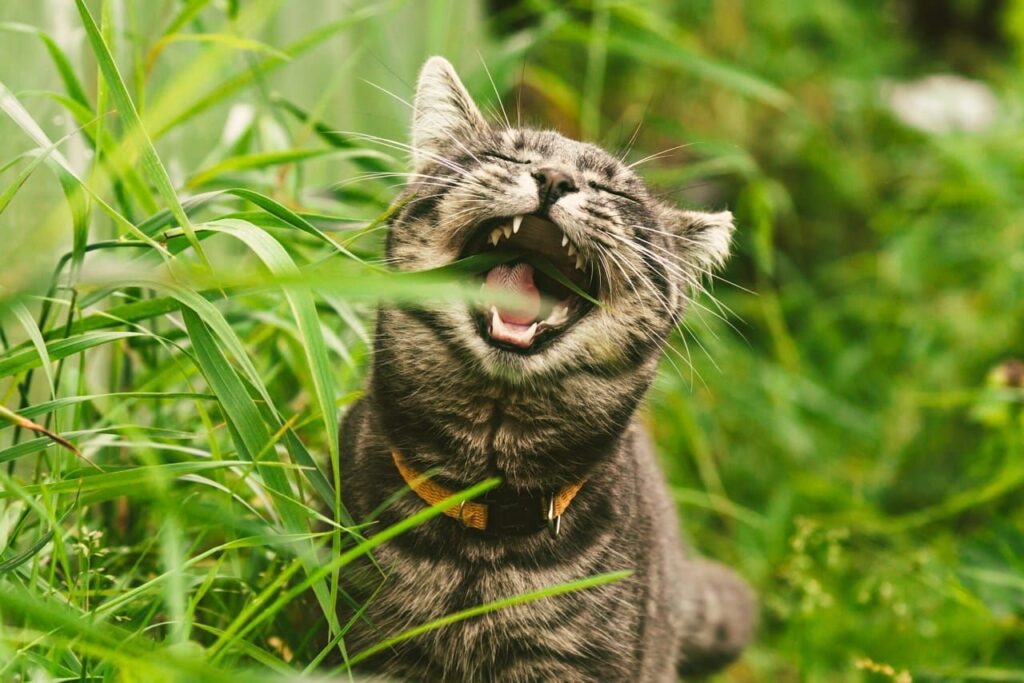
Many pet owners have noticed their cats or dogs occasionally munching on grass — a curious habit, especially in cats, which are known to prefer meat and fish. So why do our furry companions snack on greenery?
According to Dr. Jamie Lovejoy, a veterinarian at Stack Veterinary Hospital in Syracuse, New York, there are several possible explanations. “We see grass-eating behavior in both dogs and cats, but neither species has the ability to digest it,” she explains. Unlike herbivores, which have specialized gut bacteria, long digestive tracts, and sometimes multiple stomach chambers to break down the cellulose in plants, dogs and cats lack the necessary adaptations to process grass efficiently.
One common theory is that pets eat grass to ease an upset stomach. “Most of the time, the grass passes through unchanged and may be expelled through vomiting or defecation,” says Dr. Lovejoy. “That’s where a lot of old wives’ tales come from.” However, scientific studies suggest that illness is not always the primary trigger for this behavior.
A 2008 survey of 1,571 dog owners revealed that 68% observed their dogs eating grass daily or weekly, but only 8% noticed signs of sickness beforehand. Similar research on cats, published in the journal Animals in 2021, found that just 6–9% appeared ill before eating grass, though 27–37% vomited afterward. In one of these surveys, 71% of owners reported seeing their cats eat grass at least six times.
The same study also examined whether grass-eating was linked to hair removal in cats, as some believe long-haired cats vomit more often after eating grass. The results showed no clear difference in behavior between long-haired and short-haired cats.
Interestingly, wild relatives of domestic cats and dogs — such as feral cats and wolves — also eat grass, hinting that the habit may be instinctive. Some scientists speculate that in the wild, grass consumption could help expel intestinal parasites.
While grass has “no apparent nutritional value,” Dr. Lori Taylor, a clinical professor at Texas A&M College of Veterinary Medicine and Biomedical Sciences, notes that it may provide small amounts of micronutrients like vitamin B. Still, for pets on a balanced diet, this is unlikely to be a major factor.
“If your pet is healthy, eating well, and occasionally nibbles on grass, there’s usually no cause for concern,” Dr. Taylor says. “But if they consume it compulsively or vomit frequently afterward, it’s worth checking for underlying health issues.”
